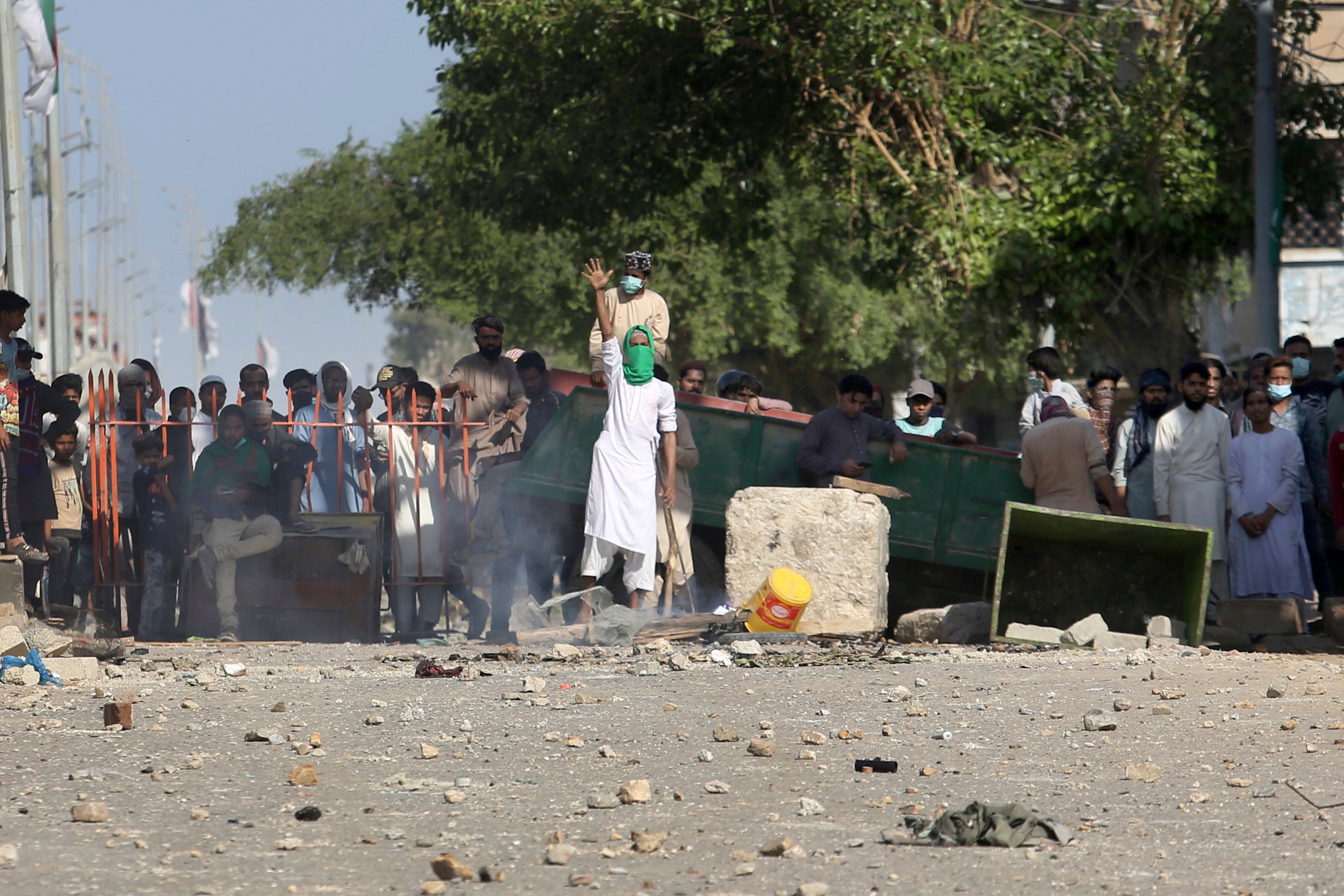3 killed in Pakistan in clashes between police, Islamists
At least two Islamists and a policeman have been killed in violent clashes between police and supporters of the head of a radical Islamist party who was arrested in the eastern city of Lahore

Your support helps us to tell the story
From reproductive rights to climate change to Big Tech, The Independent is on the ground when the story is developing. Whether it's investigating the financials of Elon Musk's pro-Trump PAC or producing our latest documentary, 'The A Word', which shines a light on the American women fighting for reproductive rights, we know how important it is to parse out the facts from the messaging.
At such a critical moment in US history, we need reporters on the ground. Your donation allows us to keep sending journalists to speak to both sides of the story.
The Independent is trusted by Americans across the entire political spectrum. And unlike many other quality news outlets, we choose not to lock Americans out of our reporting and analysis with paywalls. We believe quality journalism should be available to everyone, paid for by those who can afford it.
Your support makes all the difference.Two demonstrators and a policeman were killed Tuesday in violent clashes between Islamists and police in Pakistan, hours after authorities arrested the head of an Islamist party in the eastern city of Lahore a senior official and local media reported.
The policeman was killed in overnight clashes with the supporters of Saad Rizvi, the head of the Tehreek-e-Labiak Pakistan who was arrested on Monday, a senior police officer Ghulam Mohammad Dogar said. Ten policemen were also wounded in these clashes in the town of Shahadra near Lahore.
Two Islamists were reportedly killed in the eastern Punjab province. The violence began Monday after police arrested Rizvi for threatening protests if the government did not expel France’s ambassador over depictions of Islam’s Prophet Muhammad
According to Dogar, the arrest was aimed at maintaining law and order. But Rizvi’s detention quickly sparked violent protests by Islamists in cities around the country. The protesters blocked highways and roads in several cities.
The deadly clashes come two days after Rizvi in a statement asked the government of Prime Minister Imran Khan to honor what he said was a commitment it made in February to his party to expel the French envoy before April 20 over the publication in France of depictions of Islam’s Prophet.
However, the government has said it only committed to discussing the matter in Parliament.
The reaction from Rizvi’s supporters against his arrest was so swift that police in the eastern city of Lahore could not clear a main highway and roads. Thousands of people were stranded in their vehicles.
Monday's clashes initially erupted in Lahore, the capital of eastern Punjab province.
Rizvi’s supporters later clashed with police in the southern port city of Karachi and they continued rallying on the outskirts of the capital Islamabad, disrupting traffic and inconveniencing residents.
Rizvi emerged as the leader of the Tehreek-e-Labiak Pakistan party in November after the sudden death of his father, Khadim Hussein Rizvi. His supporters have previously held violent rallies in Pakistan to pressure the government not to repeal the country’s controversial blasphemy laws.
Rizvi's party wants the government to boycott French products and expel the French ambassador under an agreement signed by the government with Rizvi’s party in February.
Tehreek-e-Labiak and other Islamist parties have denounced French President Emmanuel Macron since October last year, saying he tried to defend caricatures of the Prophet Muhammad as freedom of expression. Macron’s comments came after a young Muslim beheaded a French school teacher who had shown caricatures of the Prophet Muhammad in class.
The images had been republished by the satirical magazine Charlie Hebdo to mark the opening of the trial over the deadly 2015 attack against the publication for the original caricatures. That enraged many Muslims in Pakistan and elsewhere who believed those depictions were blasphemous.
Rizvi's party also has a history of staging protests and sit-ins to pressure the government to accept its demands. In November 2017, Rizvi’s followers staged a 21-day protest and sit-in after a reference to the sanctity of the Prophet Muhammad was removed from the text of a government form.